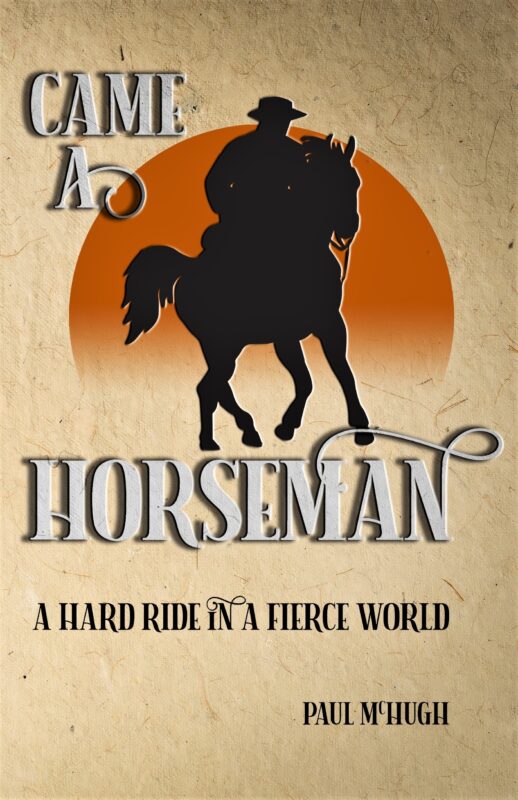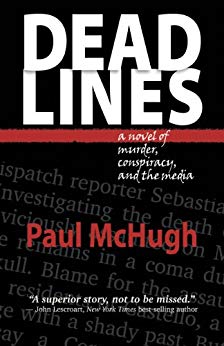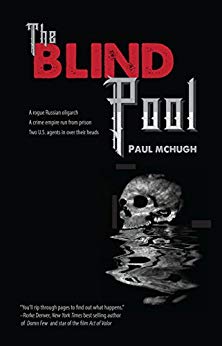An author’s view, afloat on a boat tour of Copenhagen’s waterfront

It’s no use trying to divide life into good and bad parts, into the painful and the pleasurable, or—more palpably—into the stuff you prefer to accept versus that other crap which you feel must be shunned at all costs.
All costs? Actually, no one ever pays that bill. Best not to invite such a towering tab in the first place.

Build your sandcastle of hope and desire as tall and thick as you wish. Eventually the waves, wind and tides still shall claim it all for their own. Turrets and ramparts as well as that fairy tale drawbridge with its pretend glass slipper were only ever yours for a small while—on high-interest loan the whole time.
This message gets delivered to us fairly often throughout life, yet sometimes it arrives with an extra punch. As though your sparring partner has grown bored by only teasing you with his jab and chooses to end the current round by awarding you an uppercut.

This happened to me recently in Europe—Denmark, actually, in the wee town of Old Rye, nestled in the lakes region near Skanderborg. The event took place at a legendary bistro called Lyng Dal, a family-run, gourmet restaurant of the first water. (Lyng Dal means Heather Valley in Danish, and the spot does have a bucolic setting of considerable charm.)
A RAMBLE AMONG BRAMBLES
Our local hosts, a leading pediatrician I’ll call A. and her preeminent journalist husband, H., were treating us to a remarkable, multi-course feast at Lyng Dal. Flights of wine were paired with treats that I lack the requisite scribbling chops or food-writing bombast to fully describe. Sorry ‘bout that!

Let me just quote H. as he summarized my shifting reactions: “Paul started off by saying this was one of the ten best meals of his life. After the fourth bottle, he said it was one of the four best. And then at the end, I think he said it was his absolute very best. But I’m not sure, because he wasn’t pronouncing all of his words correctly.”
So far, so true.
However, mid-flight and mid-repast, a swift thrust from a darker form of reality chose to intrude on the deal.
Out of nowhere, I felt a sudden pang in my right elbow, and involuntarily grabbed it with my left hand. I must have shown some shock or dismay, because H. asked, “Paul? Are you okay?” And I said I was, but that was untrue. I furiously wondered what my jolt of pain presaged. A heart attack? I didn’t think so. For one thing, wrong side of my body! Also, I felt no dizziness, or weakness, or loss of balance, not any other symptoms. Just a searing heat in my elbow that steadily intensified until it bloomed into agony.

Nonetheless! I still had a gourmet menu of many marvels to munch. Without uttering a complaint or making any further show of discomfort, I proceeded to fall to, chomping gamely through the courses that followed with as much gusto as I could muster, making it all the way to our ultimate treat: a toasted, homemade marshmallow paired with a savory digestif.
Why? Well, one reason, I suppose was that this event had begun to present me with an epic pairing of Epicureanism and Stoicism. That alone made my striving to persist seem of high value. I mean, if it had to be my Last Supper, I could hardly do any better!

One more reason was that I’ve always felt a certain dose of envy for legendary writer Jim Harrison’s culinary forays in Europe. Here was a good—and perhaps my only—chance to indulge in an outing that might rise to a similar level of attainment.
DIGRESSION ON DIGESTION

Don’t get me wrong, when it comes to good ol’ Jim, I’m no fanboy. I’ll admit, though, there’s lots about this Upper Midwest scribbler to admire. He was extremely well-read, had a ready and voluminous memory, and over his 78 years (he died in 2016), he managed a prodigious output of novellas, stories, essays and poems.
But that’s part of my problem. His works seem to have been cranked out in a compulsive torrent, seemingly most intent on achieving quantity over quality. His desperate search for a steady income could explain this. Since he did have talent, the long sluiceway of his oeuvre holds some true gems; however, a reader is forced to paw through an immense slurry of raw ore in order to find them.
My other beef with Harrison is that macho posturing and performance seems as much a part of his life’s labor as his writing does. He’s of an ilk with Hemingway and Mailer in that regard. Nowhere is this more evident than in his flamboyant essays on eating and drinking. He presents himself as a gent of gargantuan appetite. Where others might verge on gluttony, Harrison takes a running leap from the shoreline of normalcy to belly-flop smack in the center of that phenomenon.

But, I’ll grant him this. He was a tough mudder. If Harrison even absorbed half of the yummy calories he bragged about consuming, I’m astonished he made it to 78! He should’ve croaked from a clogged gut, stomach ulcers and an exploded liver long before. I mean, the dude crammed himself like a foie gras goose.
So, why then would I feel tempted to imitate Harrison, to any degree? Sheer curiosity! I hoped to tiptoe up to the edge of grand gourmand cosplay and score myself a wee taste. Then, if I ever wished to fictionalize about a similar scene, I’d find myself much more capable of doing so.
After I completed my research amid that lovely evening at Lyng Dal, our generous hosts picked up the tab; they would not let my wife and I contribute so much as a token.

However, another bill soon came due that only I could pay. That night my right elbow swelled to the size of a grapefruit. It throbbed as if a blacksmith sought to hammer it into a horseshoe. The heat of that lump seemed to glow with the intensity of a searchlight bulb. It felt impossible to find any comfortable sleeping position, particularly since pressure on the joint from any angle only boosted the pain. My elbow would no longer bend to any degree. Only the fact that I’d guzzled nearly as much wine as Jim Harrison on an international romp made it possible for me to eventually pass out—lying prone on my stomach with my wrist propped on a pillow so that my elbow hung in midair.
GUMBY, I WAS NOT
The next morning I staggered downstairs, pleased that I was only moderately hungover (Tip for Aspiring Gourmets: always drink a ton of water after going on a total toot). But I felt highly displeased that my right arm remained unfunctional as a human limb.

Luckily, A., the lady pediatrician, willingly sprang to my rescue even though I’d been doing my level best not to appear to be any sort of crybaby in front of her.
First, diagnosis. We agreed that I’d probably gotten myself stung with a keen, malevolent accuracy right on the bursa (fluid-filled sack) of my elbow. Whether by a wasp, bee, or some alien robot insect released by a UFO that had sortied from an enemy galaxy and happened to pick me for its first victim… such a determination was, at this point in time, impossible to make.

Second, treatment. She had various meds at her disposal, and hit me up with tabs to reduce swelling, control allergic reaction, and so forth. No painkillers, though. (Drat… !!!)
Third element, time. A patient must have patience. It took a week for me to be able to bend my arm enough to brush my teeth with my right hand. (My left hand did not noticeably improve at the task during this period.) It took three weeks before I could chin myself on my pull-up bar at home, and an entire month before my elbow felt fully healed.
WASP WASTED

Now, I’d already served a ton of time with the stinging kind. As a kid growing up in Florida, I recall getting into a tree-climbing contest with a young cousin. We simultaneously attacked a pair of Australian pines, clambering upward with verve, until I ran head-first into a wasp nest. They responded with much more verve than we had shown. I screeched and let myself fall, bouncing from branch to swaying branch until I landed on a soft heap of needles down by the roots.
My head was dotted with so many bumps, I looked like a plague victim. My aunt coated it all with Calamine lotion. Whereupon, I also began to look like a beige leper. Still, my discomfort only lasted a day or two. Kids heal fast.

And some decades later, I was on a California hillside, slicing away at a downed tree with a chainsaw, when I happened to step over the main entrance hole of a yellowjacket nest. Whereupon a horde of them swarmed up my pant leg and launched a wholesale attack on every inch of flesh from ankle to bellybutton. My ensuing interpretive dance included—in no particular order, since I was trying to do all of these things at once—shutting off and setting down the chainsaw without cutting myself anywhere, slapping my leg and groin wherever I felt a bite, which occurred continuously and everywhere, yanking off my boots, pulling off my pants and then sprinting across the hill in my underwear to run as far as I could from that nest.
Compared to that roster of chores, my next task was simple: cussing out my two companions, who rolled on the ground, clutching at their stomachs while they howled with laughter.
Even so, back at the ranch house an hour later, smearing rubbing alcohol on the outside of my body while pouring drinking alcohol on the inside allowed me to eventually chuckle along with them.
But this Danish hexapod must’ve been a horsefly of a different choler.
The lady doc and I agreed that my reaction had been extreme due to the sensitive site of the bite and the probable fact that the Euro bug had delivered a venom or toxin my immune system hadn’t ever met before. The sleeves of my shirt had been rolled up on my forearms, the wasp or whatever it was had crawled up there without me noticing, and then when I bent my arm to raise my fork, it felt itself trapped and crushed by the tightening fabric, and so lashed out with everything it had.
SO, WHAT’S THIS HAVE TO DO WITH WRITING?

Simply this. If your story is to resemble life with any faithfulness, unalloyed bliss is as unrealistic as unmitigated despair. Yin shall always sport a spot of Yang, while Yang must forever display some dot of Yin.
There’s a reason why the U.S. Founding Fathers—children of the Enlightenment that they were—spoke of the inalienable right of “the pursuit of happiness” in their Declaration of Independence. The pursuit is everything, and if no impediments or hurdles should ever appear before us, including distance, well, that would be no journey at all.
My favorite quote from Robert Louis Stevenson: “To travel hopefully is better than to arrive.”
That time-hallowed Halloween query, “Trick or treat?” is a conundrum precisely because life never simply hands us one or the other. It shall always and forever be a blend of both.

Consequently, a pure hedonist shall end as a real Sisyphus—a poor beetle seeking to roll that dung ball of desire eternally uphill, arriving at no plateau or peak, merely mounting a staircase of false summits. Meanwhile, the sage simply stops, finds a ledge and sits, to contemplate the ten thousand things as they truly are.
As storytellers, we would do well to skirt the simple answer, the contrived purity of any imagined state of arrival. It will make our characters more interesting and award their issues and choices a greater verisimilitude.
My insect sting at our grand dinner at Lyng Dal not only made that event more memorable, it also rendered it much more realistic. I’d been reminded I wasn’t entirely adrift in some paradisical fantasy, but still rooted in ordinary life on Earth.
Perhaps Shengstan, the third Zen patriarch, says it best.
“The great way is not difficult for those who have no preferences. When love and hate are both absent, everything stands clear and undisguised. Make the smallest distinction, however, and heaven and earth are set infinitely apart. To set up what you like against what you dislike is a disease of the mind. When the deep meaning of things is not understood, the mind’s essential peace is disturbed to no avail.”









